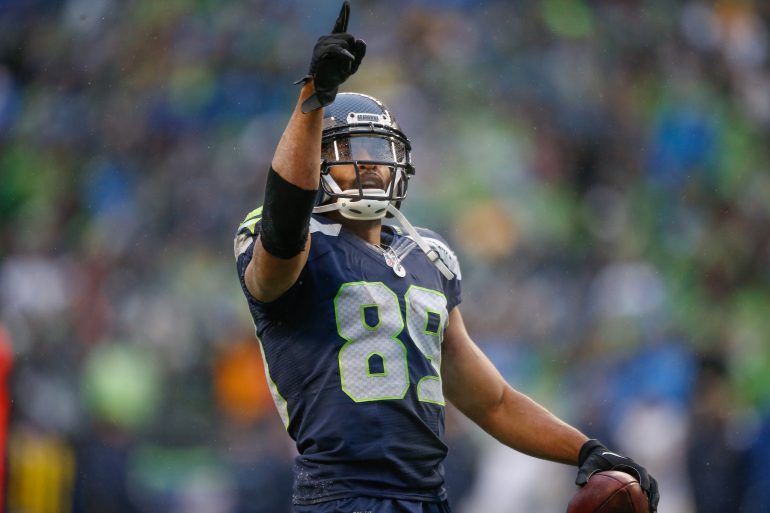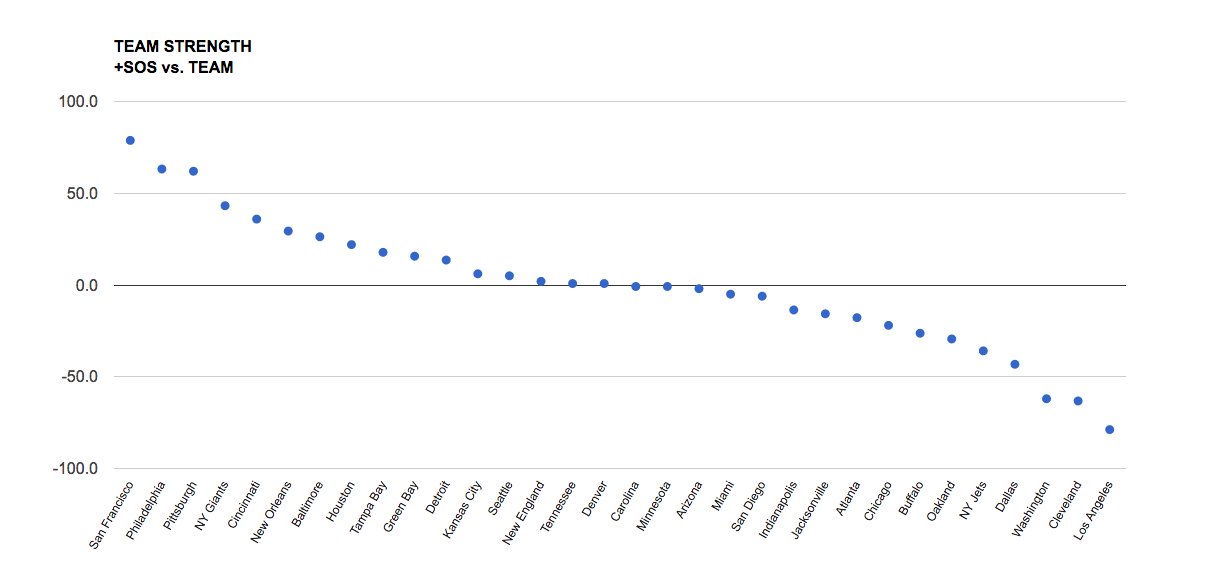POWER RANKINGS
Week one in the NFL is where overreactions reign supreme. The San Francisco 49ers are probably not the best team in the NFL. The Philadelphia Eagles are probably not the second best team in the NFL. Our week one power rankings, which are statistically driven to remove as much subjectivity as possible, really are a measure of which teams played the best in their first game.
Carolina ranked 16th after the first week last year and went on to win 15 games. Tennessee ranked first and the Rams ranked sixth. The eventual Super Bowl winners, Denver, were ranked eighth. Seattle, Minnesota and Washington all ranked 20th or worse and made the playoffs.
The Seahawks start this year at 13th, just above the midpoint. It might be surprising to see them above the Patriots, who won impressively in Arizona. That is largely due to a New England defense that struggled to slow down either the Cardinals pass efficiency (104.7) or run efficiency (4.8 YPC). It was not pretty, but the Seahawks had a positive pass, run and point differential. The Patriots were negative on the run differential.
Seattle is now headed off to play the team that had the worst statistical performance of week one in the LA Rams. We will find within the next few weeks if they really are as bad as they looked Monday night.
NOTE: I have decided to remove strength of schedule from the rankings until week two or three when there is a little more logic to SOS calculations.
Rankings Table
Scatter chart
RANKINGS EXPLAINED
Power rankings are always debatable. I don’t buy into the gut feel methods most places use to determine their rankings, so I developed a formula a few years back that attempts to take at least some of the subjectivity out of the discussion. My approach was simple, I measured offensive and defensive efficiency based on the Yards Per Carry (YPC) and Yards Per Attempt (YPA), as well as points scored and points allowed. The formula to calculate “Team Strength” was as follows:
(YPC (offense) + YPA (offense) + Avg Pts/Game Scored) – (YPC (defense) + YPA (defense)+ Avg Pts/Game Allowed)
The formula has proven to be a pretty accurate predictor of success, but I am always looking for ways to improve it. I read a great article on ColdHardFootballFacts.com. There was one gem in there about predicting championship teams. The article mentioned passer rating differential as the “mother of all stats.” A full 69 of 72 champions have ranked in the Top 10 in this statistic. It is a stat after my own heart, as I believe offensive and defensive efficiency is the key measurable outside of point differential. Turnovers would factor in there as well, but I am not convinced a team has as much control over that. My power rankings use YPA and YPC differentials. I went ahead and replaced the YPA with offensive and defensive passer rating, to give me this:
(YPC (offense) + Passer Rating (offense) + Avg Pts/Game Scored) – (OPP YPC (defense) + OPP Passer Rating (defense)+ OPP Avg Pts/Game)


